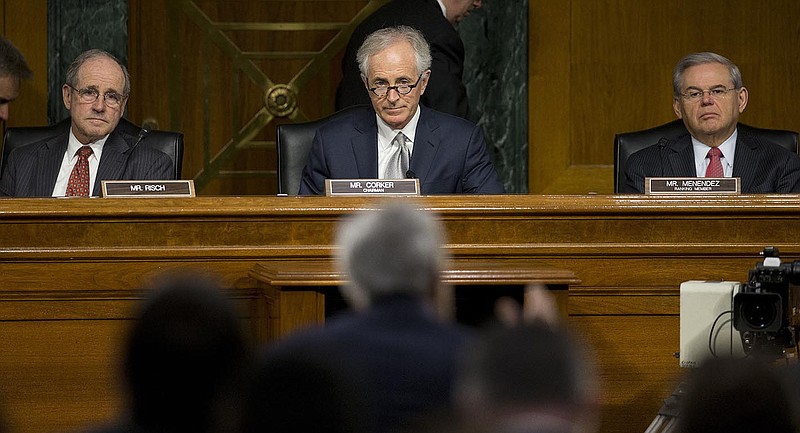While the Washington, D.C., media was focusing on the status of the tottering Republican health care proposal Thursday, a group of U.S. senators did something quite remarkable. They introduced a bipartisan plan to hold Middle East terror sponsor Iran accountable for its actions.
The six sponsors include Bob Corker, R-Tenn., Marco Rubio, R-Fla., Tom Cotton, R-Ark., Ben Cardin, D-Md., Bob Menendez, D-N.J., and Bob Casey, D-Pa.
Five of the six voted for the 2015 congressional resolution disapproving former President Barack Obama's one-sided nuclear deal with Iran, which won a majority of votes but failed to get the needed 60 votes to keep Obama from having to veto it.
Only Casey voted against the resolution, but he's up for re-election in 2018 and may not want another pro-Iran vote on his record.
The Countering Iran Destabilizing Activities Act also has four Republican co-sponsors and four Democratic co-sponsors, so it is truly an outlier in bills that come before Congress these days.
Among other things, the bill would impose mandatory sanctions on persons involved with Iran's ballistic missile program and those entities that transact with them, would apply terrorism sanctions to the Islamic Revolutionary Guard Corps (a branch of the country's armed forces) and would list individuals who are currently sanctioned due to Iranian support for terrorism, and would require the president to block the property of any person or entity involved in specific activities related to the supply, sale or transfer of prohibited arms and related material to and from Iran.
Iran, of course, has violated the 2015 agreement several times, especially where the use of ballistic missiles is concerned.
Menendez said the measure would help the U.S. "speak with one voice" on keeping "Iran accountable for its continued nefarious actions across the world as the leading state sponsor of terrorism." He said it would not interfere with U.S. commitments under the Iran deal, known as the Joint Comprehensive Plan of Action (JCPOA).
However, Cardin said the JCPOA does not keep the U.S. from sanctioning Iran for its support for terrorism, human rights violations and pursuit of ballistic missiles.
"This legislation demonstrates the strong bipartisan support in Congress for a comprehensive approach to holding Iran accountable by targeting all aspects of the regime's destabilizing actions," Corker said in a news release. "These steps will allow us to regain the initiative on Iran and push back forcefully against this threat to our security and that of our allies."
Since President Trump said in February he was putting Iran "on notice" for missile tests and a missile attack on a Saudi ship, we hope Congress will speedily approve this bipartisan bill and put teeth behind the president's words.
